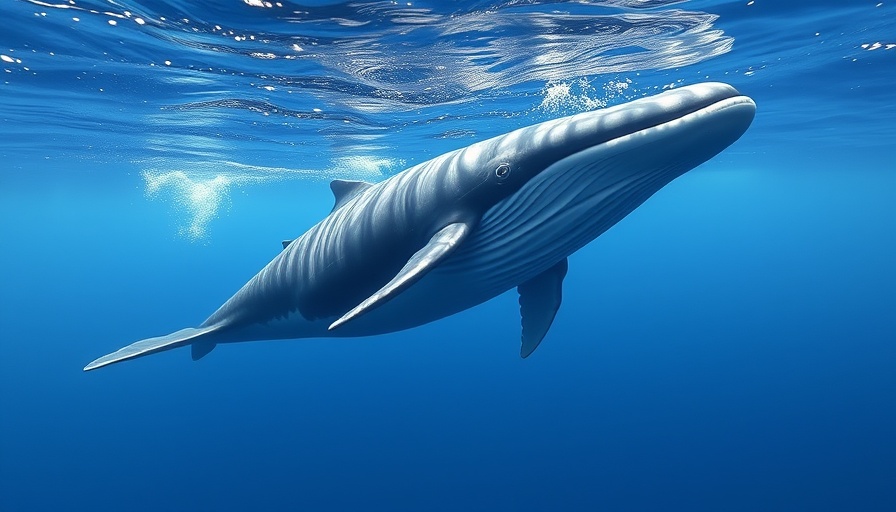
The Impact of Plastics on Marine Mammals: A Global Crisis
Every year, millions of tons of plastic waste enter our oceans, posing a significant threat to marine life. The remote archipelago of Madeira, known for its stunning landscapes and biodiversity, is not immune to this pressing issue. As a haven for various whale and dolphin species, researchers here are unraveling the impact of plastic pollution on these magnificent creatures.
In 'What Are the Impacts of Plastics on Whales and Dolphins? | Changing Seas', the discussion dives into the critical issue of marine pollution, exploring key insights that sparked deeper analysis on our end.
Madeira: An Oceanic Treasure
Situated in the eastern Atlantic, Madeira is often referred to as the "pearl of the Atlantic." This volcanic archipelago has its unique marine ecosystem, playing host to approximately 30 species of cetaceans. Notably, the waters surrounding Madeira have become a focal point for studying marine mammals, particularly due to their vulnerability to environmental changes.
Understanding Plastic Pollution's Reach
Despite its geographical isolation, Madeira faces significant challenges from marine plastic waste. Major contributors include both global litter carried by ocean currents and local runoff. Researchers note that plastic pollution can be divided into categories, including microplastics—tiny particles that often originate from larger plastic breakdown—and macroplastics, which are larger and can cause entanglement or ingestion issues.
The Quandary of Ingestion and Entanglement
Animal encounters with plastic can have dire consequences. Marine mammals, such as sperm whales and bottlenose dolphins, ingest these substances, mistaking them for food. Some studies suggest that ingestion can lead to physical blockages and poisoning through chemical toxicity. Alarmingly, phthalates—chemicals that make plastics flexible—have been identified in various marine organisms, indicating potential long-term health risks.
Researching the Presence of Plastics
To better understand the prevalence of plastics in the waters of Madeira, scientists have employed various techniques, including net trawls. These methods enable them to collect water samples and analyze the microplastics consistently found in marine species. The research team at MARE-Madeira has also conducted biopsies of local marine mammals to ascertain the accumulation of pollutants in their bodies.
Link Between Plastic and Human Health
The accumulated findings from Madeira underscore a larger relationship between marine pollution and human health. As marine contaminants enter the food chain, the implications extend beyond the marine environment, impacting human communities reliant on seafood. It is imperative to recognize that the degradation of marine ecosystems has far-reaching effects, from ecological balance to public health.
Innovative Solutions and Collective Responsibility
Given the global nature of plastic pollution, it is vital to adopt a collaborative approach in addressing this crisis. Community clean-up initiatives, policies aimed at reducing plastic use, and supporting local conservation efforts are essential steps in combating this issue. The researchers in Madeira are not only alleviating local concerns but also contributing to a global understanding of the impacts of plastic.
Future Directions: Research and Advocacy
The work being done by the MARE-Madeira team is critical as they delve deeper into understanding the long-term effects of plastic on marine life. Each discovery raises new questions, making it clear that addressing plastic pollution is an ongoing battle. Continued research combined with effective advocacy can lead to more informed public policies and environmental strategies.
Conclusion: Protecting our Oceans and Their Inhabitants
As fascinating as the ocean's depths may be, the pressing issue of plastic pollution looms large. The findings from Madeira serve as a stark reminder of our collective responsibility to safeguard our oceans—not only for the whales and dolphins that inhabit them but for the health of our planet as a whole. It is upon all of us to act decisively, ensuring that future generations inherit a cleaner, healthier ocean.
 Add Row
Add Row  Add
Add 






Write A Comment